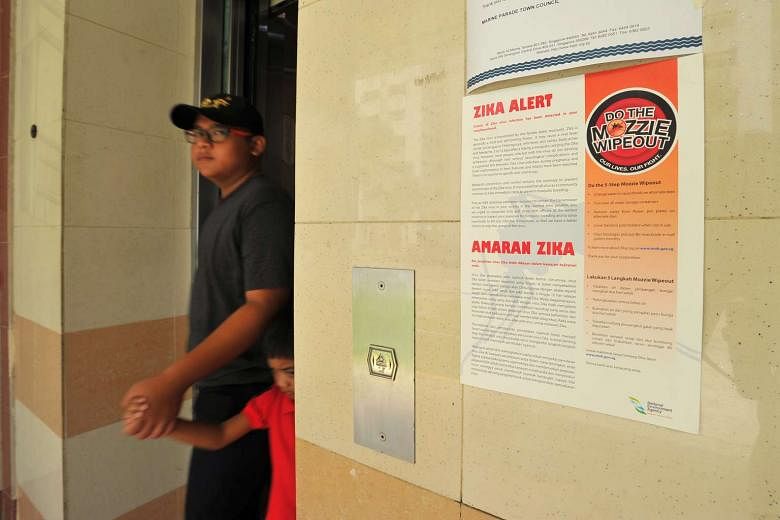GENEVA - The World Health Organisation (WHO) said Singapore represents a role model for countries in its handling of Zika cases, and praised the level of transparency shown here.
It also revealed that Singapore is expected to complete gene sequencing of the virus strain behind the cases by next week. This is to confirm if the virus is the Asian strain, which is behind outbreaks in Brazil and the Americas, and which has been linked with microcephaly.
Last Saturday (Aug 27), the authorities announced that a locally transmitted case had been detected in the Aljunied area. The number of infections stood at 189 as of noon on Friday (Sept 2) - including 38 newly detected cases. While 34 of the latest cases were linked to the Aljunied Crescent/Sims Drive/Kallang Way/Paya Lebar Way cluster, the remaining four new cases were not associated with any existing cluster, the Health Ministry said. It did not specify any other locations.
So far, two pregnant women have been infected. While the Zika infection is mild for most people, it can have serious consequences for unborn children, who may develop microcephaly and be born with a much smaller head.
Speaking after a meeting of the WHO's emergency committee on Zika at its Geneva headquarters on Friday, its outbreaks and emergencies head Peter Salama highlighted the "enormous" amount of work Singapore put in over the last week to track and contain the spread of the Zika virus.
This includes "epidemiological work, lab work, public health work, including vector control, detailed follow-up including retroactive analysis of cases".
Dr Salama added: "We really have to congratulate the transparency and quick reporting the Government of Singapore has implemented in the case of this outbreak and hope that all other countries can do the same."
On Friday, the National Environment Agency said there will be community outreach activities over the coming two weekends across the island to urge residents to fight Zika. Among other things, they should ensure that mosquitoes are not breeding in homes and remove stagnant water.
Dr David Heymann, chairman of the WHO emergency committee on Zika, said the disease continued to constitute an international health emergency although the risk to people attending the Sept 7-18 Paralympics in Rio de Janeiro was low.
"This extraordinary event is rapidly becoming, unfortunately, an ordinary event. And Zika is beginning to spread, continuing to cause outbreaks in many countries around the world," Mr Heymann told a news conference.
Singapore, with a "very technologically advanced health system", was able to identify the disease "very early", Mr Heymann added. "But in other countries where it might enter at some time, that might not be the case."

